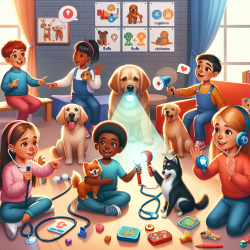As a parent, you may often find yourself puzzled by your child's behavior, especially when they are unable to cope with stressors. The concept of self-regulation is pivotal in understanding these behaviors. But what exactly is self-regulation?
What is Self-Regulation?
Self-regulation refers to the ability to manage one's behavior, emotions, and body movement in challenging situations while remaining focused and attentive. It involves dealing with stressors and recovering from them effectively. Unlike self-control, which is about inhibiting impulses, self-regulation involves identifying triggers and reducing the intensity of impulses to maintain balance.
The Importance of Self-Regulation
Research over the past decades has shown that self-regulation significantly influences a child's physical, behavioral, educational, psychological, social, and cognitive development. Supporting your child's self-regulation leads to long-term positive outcomes in academic achievements, social interactions, and overall well-being.
Dysregulation: Understanding the Signs
Dysregulation occurs when a child cannot deal with or recover from their stressors. Common stressors include lack of sleep or exercise, interactions with unfamiliar people, changes in routine, and sensory overloads like loud environments or strong smells.
Signs of dysregulation vary among children but may include defiance, mood swings, impulsivity, difficulty paying attention or sitting still, and trouble getting along with others.
Supporting Self-Regulation at Home
Every child is unique in their self-regulation challenges. However, parents can play a crucial role in supporting their child's ability to self-regulate by:
- Identifying Stressors: Understand what causes anxiety or discomfort for your child.
- Encouraging Emotional Expression: Help your child articulate their feelings through words or emotion books.
- Providing Structure: Consistent routines help reduce stress.
- Ensuring Basic Needs are Met: Adequate sleep, a balanced diet, and regular exercise are essential.
- Modeling Self-Regulation: Show calmness and empathy during stressful times.
Coping Strategies for Your Child
Create a toolbox of coping strategies that your child can use when feeling dysregulated. This can include:
- Sensory Breaks: Engage in activities like making slime or listening to soothing music.
- Mental Breaks: Encourage activities like puzzles or board games.
- Physical Activities: Promote sports or dance parties to release energy.
- Positive Self-Talk: Encourage affirmations like "I am capable" or "I am strong."
Your Role as a Parent
Your ability to self-regulate serves as a model for your child. Practice techniques such as deep breathing or listening to music to manage your own stress. Remember that children learn by observing you; thus, being the best version of yourself benefits both you and your child.
For more information on supporting your child's self-regulation journey, please follow this link.










